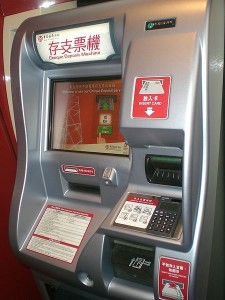China: Investing when faced with questionable statistics and political risks
Up until the late 19th century, the academic discipline now known as Economics was called Political Economy. I’ve always liked that term because it implicitly acknowledges that all economic activity occurs within a political and legal framework. Economics, in contrast, sounds technical and removed from the messy world of politics. Of course, politics and economics have always been firmly intertwined and this will continue to be the case until governments and their citizens stop using the political process to influence economic outcomes. We expect this to happen immediately after winged hogs start flying loops outside our office window.
With the possible exception of Russia, China has the highest degree of state involvement in industry of any country in the G-20, and there are signs that this state involvement is growing. The high degree of political influence in economic affairs is a primary reason we have been wary of investment in China. It is difficult for us to justify risking investment capital in Chinese companies when the basic tenets of open markets don’t seem to apply to them: shareholders have limited transparency, substantial ownership stakes are held by sponsors closely allied with the Communist Party, key suppliers and customers are directly controlled by the goverment, and the state plays an active, dominant role in key industries with an explicit aim of perpetuating the rule of the current regime. Political considerations doubtless play a role in commercial decisions and this does not make for an efficient market.
As investors, we are also concerned about the risks posed by outright state appropriation of private assets. The Chinese regime at a national level has not trampled over property rights in the blunt manner that Russia’s has, but at the local level, officials have not been shy to disposses individuals of resources and property they have a claim to. In this context, we are troubled by the arrest of employees of Rio Tinto (a major Australian mining and materials company) on charges that they engaged in trade espionage and overcharged Chinese state-owned enterprises for raw materials. We believe the arrests are linked to two other events: Rio Tinto’s refusal of a major investment by state-owned Chinalco and the controversy over the screening of a film on Rebiya Kadeer at the Melbourne Film Festival. Ms. Kadeer was punished for her activism on behalf of China’s Uighur minority by being thrown in jail and having much of her wealth appropriated by the state. It is difficult to dismiss the scenario that Chinese authorities are using the power of the state to exact retribution or push for an outcome more desirable for Chinalco.
Part of the legal argument for arresting Rio Tinto executives is that China deems many statistics to be state secrets and since so many enterprises are directly or indirectly state-owned, much commercial data on their operations could enjoy similar status. In general, unequal treatment under law, a politicized judiciary and thin protection for private property in China has made us evaluate investments in China with more than the normal level of skepticism applied towards emerging markets.
The second reason we have been skeptical of Chinese asset valuations is that the average Chinese investor has been removed from a free market environment for at least two generations. Numerous academic studies have remarked on long-lasting discrepancies between A and B shares on the Shanghai index. The shares conferred equivalent economic rights, but until 2001 A shares could only be held by domestic investors, while B shares were held only by foreign investors. A shares prices were consistently higher than those for B shares, some have suggested this was due to an information advantage held by domestic shareholders. We feel that part of the explanation is that public markets for securities are still a new experience for Chinese business-owners and investors. The people with the best local knowledge to value assets are operating in an environment with which they have limited experience. Where there is limited understanding of markets and their risks, asset prices can easily be determined by momentum driven investors and purely speculative forces. By no means is this state of affairs limited to China, but it must be taken into account when evaluating the Chinese market for investment purposes.

Amongst other troubling factors are suggestions that the economic statistics coming out of China are unreliable. This seems entirely plausible since the Chinese administration is singularly focused on controlling discussion about the Chinese for propaganda purposes. The Financial Times noted recently that the GDP numbers for the first half of 2009 do not reconcile at the state and national levels and official wage statistics were greeted with incredulity by most. The speed with which GDP statistics are produced is also cause for concern. Provincial and regional officials are evaluated and rewarded on the level of economic growth within their geographies and we feel this incentivizes double-counting and dodgy accounting to create an illusion of higher growth. Given the state-controlled nature of many industries, we feel managers at numerous commercial enterprises have similar incentives. Earlier this year, the National People’s Congress acknowledged that falsification had occured and increased penalities for fabricating data, but the revised law and penalties will not take effect till 2010.
The opening paragraph of the most recent GDP report from the National Bureau of Statistics of China can be paraphrased as “everything went according to plan in all provinces”. We find it difficult to believe this claim when so many things were going wrong in many of China’s largest trading partners. The same report tells us that export activity dropped by almost 22%, and imports fell by over 25% (which matches BDI statistics). This apparently left major export-focused regions unaffected. Broad money supply (M2) on the other hand, grew by almost 30%, which makes the maximum 10% y/y increase in the US look positively responsible. Since bank lending and money supply have risen so quickly, it is likely that some activity is being generated by nervous managers and officials using borrowed funds to meet centrally mandated growth targets.
Along with hard data on a drop in exports, the Economist has reported that commercial real-estate vacancies in Beijing are approaching 25%, a clear sign of over-building. Power generation is amongst the most reliable indicators of economic activity in developing countries where economic data series may not be robust, and by that measure the picture is far murkier than the 7.1% annualized growth rate the GDP stats project. In April, the International Energy Agency noted that Chinese GDP data for Q1 and oil consumption diverged, which is quite atypical. We are also skeptical about claims that consumer demand rose strongly along with wages since the anecdotal evidence suggests unemployment has risen markedly (the official unemployment figures have hardly budged).
Derek Scissors at the Heritage Foundation has a strongly worded piece about the statistical data coming out of China and the impact that bank lending and investment spending have had. I must note that these speculations are not new. As far back as 2001, questions about the quality and reliability of Chinese economic data have been raised by researchers publishing in China Economic Review (see Rawski 2001, Keidel 2001) in particular the use of a value-added method to calculate GDP.
All of the concerns expressed above have led us to be extremely cautious on China as investors. We are well aware that Chinese industry has become a crucial part of the supply chain for many industries world-wide, and that we cannot ignore China in international stock allocations. We also know that most investments in emerging markets carry similar risks which have to be balanced with the opportunities. That said, the mix of opacity, state control, limited local experience with asset markets and a weak judiciary creates a series of risks very difficult for an investment manager to account for, and usually leads us to exit investments in China earlier in a cycle than we would investments elsewhere. The questions revolving around national statistics makes us wary of taking shorter-term macro position and generally skeptical of those who are unreservedly bullish on China.
